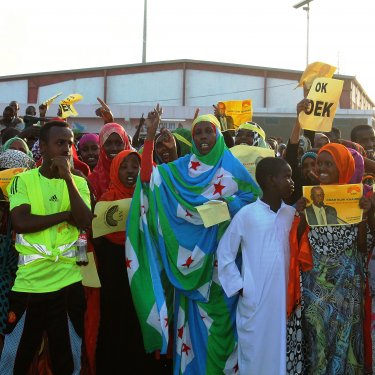Djibouti clamps down on journalists in run-up to poll

Reporters Without Borders (RSF) condemns the arrest and expulsion of a BBC reporting team that went to Djibouti to cover the run-up to the 8 April presidential election, and points out that a democratic election cannot be held amid such a level of censorship.
The BBC journalists, who included Africa security correspondent Tomi Oladipo, were arrested on 1 April and were detained for a total of 18 hours without being able to communicate with the outside world. After being questioned for eight hours, they were held overnight and were put on a flight out of the country the next morning.
The journalists, who all had accreditation, were not told why they were arrested and expelled. The BBC’s written request to the authorities for an explanation has so far gone unanswered.
Before being arrested, the journalists had interviewed the foreign minister and an opposition candidate.
“We are deeply shocked by the way Djibouti’s authorities have treated duly accredited journalists,” RSF said. “It is clear that the government wants to gag the media and prevent any independent coverage of the opposition. We therefore believe that the conditions necessary for a transparent and democratic election have not been satisfied.”
It is safe to assume that Djibouti’s president for the past 17 years, Ismaïl Omar Guelleh, will win his bid for a fourth term. An opposition coalition called the Union of National Salvation (USN) has described the election as a “sham.”
The government has been clamping down hard on all forms of dissent for months, arresting opposition politicians, human rights defenders and journalists. RSF already condemned the harassment of journalists in January.
Djibouti is ranked 170th out of 180 countries in RSF’s 2015 World Press Freedom Index.



